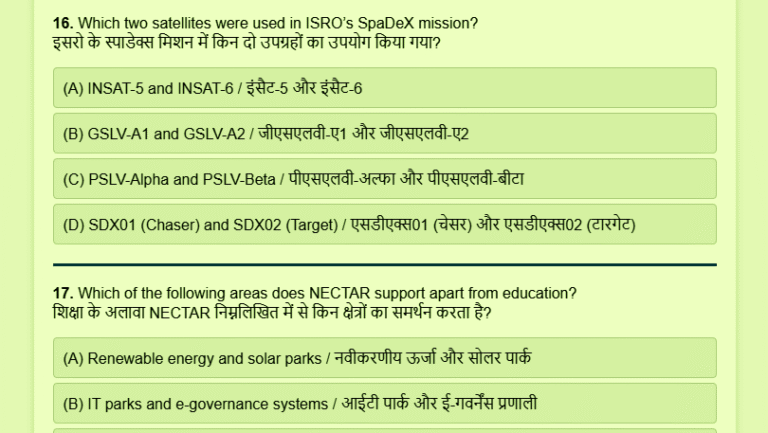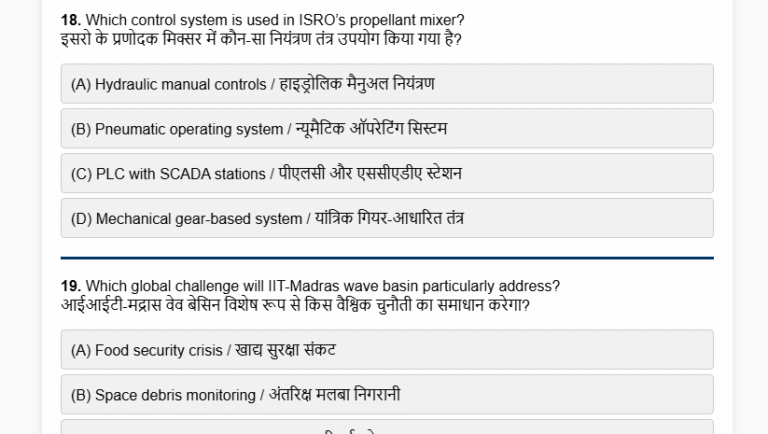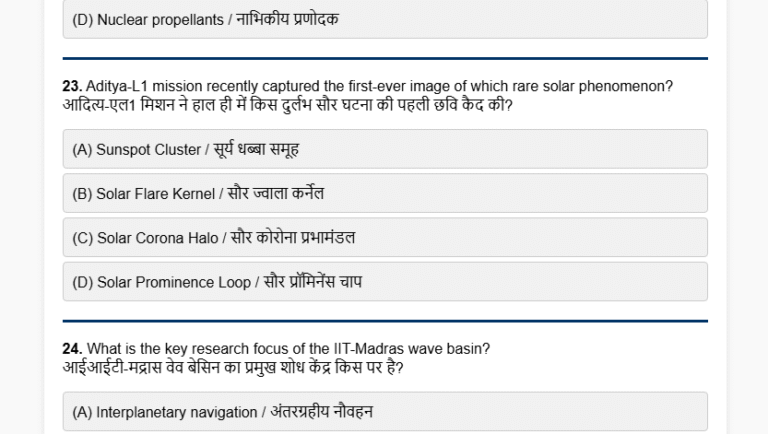Banking Laws (Amendment) Bill, 2024
Introduction
The Banking Laws (Amendment) Bill, 2024 marks a significant legislative effort to modernize and streamline the operations of the Indian banking sector. Passed by the Lok Sabha, this bill introduces amendments to several foundational banking acts, reflecting changing economic needs and enhancing the regulatory framework. The bill touches on various aspects, such as cash reserves, tenure of directors, investor protection, and remuneration of auditors, ensuring more flexibility, transparency, and efficiency in banking operations.
Acts Amended
The Banking Laws (Amendment) Bill, 2024, makes changes to the following key legislations:
- Reserve Bank of India (RBI) Act, 1934
- Banking Regulation Act, 1949
- State Bank of India Act, 1955
- Banking Companies (Acquisition and Transfer of Undertakings) Act, 1970
- Banking Companies (Acquisition and Transfer of Undertakings) Act, 1980
These amendments are designed to align banking laws with contemporary economic realities and enhance operational efficiency.
Key Changes Introduced
1. Redefining “Fortnight” for Cash Reserves
Background
Under the RBI Act, 1934, scheduled banks are required to maintain a certain average daily balance with the RBI as cash reserves. Previously, this was calculated on a fortnightly basis.
Amendment
The bill redefines “fortnight” to adopt a calendar month-based definition for calculating the average daily balance of cash reserves.
Implications
- Simplified Calculation: Aligning the cash reserve calculation with a calendar month simplifies the process and aligns it with standard accounting practices.
- Efficiency: Helps banks manage their reserves more effectively, avoiding confusion arising from fortnightly calculations.
- Transparency: Ensures greater consistency and clarity in reporting and compliance.
2. Tenure of Co-operative Bank Directors
Background
Co-operative banks play a critical role in India’s financial ecosystem, especially in rural and semi-urban areas. Leadership stability in these banks is crucial for their effective functioning.
Amendment
The bill extends the tenure of co-operative bank directors to a maximum of 10 years.
Implications
- Stability: Longer tenures promote continuity in leadership, ensuring consistent policies and long-term strategies.
- Efficiency: Provides directors more time to implement reforms and address systemic issues.
- Accountability: Extended terms encourage directors to focus on the long-term health of the co-operative banks rather than short-term gains.
3. Prohibition on Common Directors
Background
Earlier provisions allowed directors to serve on multiple boards within the co-operative banking structure. This sometimes led to conflicts of interest and inefficiencies.
Amendment
The bill maintains the prohibition on common directors but introduces an exemption for central co-operative bank directors serving on state co-operative bank boards.
Implications
- Better Coordination: Facilitates seamless collaboration between central and state co-operative banks.
- Reduced Conflicts: While preventing excessive overlapping, the exemption ensures better communication and coordination.
- Enhanced Governance: Promotes more effective governance by avoiding conflicts and promoting specialized oversight.
4. Substantial Interest in a Company
Background
The concept of “substantial interest” dictates how much an individual associated with a bank can invest in a company. Previously, this threshold was low, reflecting past economic conditions.
Amendment
The threshold for substantial interest has been raised to ₹2 crore.
Implications
- Investment Flexibility: Encourages greater investment by bank-related individuals, reflecting current economic realities.
- Economic Growth: Allows for more robust financial involvement in companies, promoting entrepreneurship and economic development.
- Regulatory Adaptation: Keeps regulations relevant to the current economic environment and inflationary trends.
5. Nomination Flexibility
Background
Earlier, depositors were limited in the number of nominees they could designate for their deposits, complicating inheritance processes.
Amendment
The bill allows depositors to designate up to four nominees.
Implications
- Enhanced Flexibility: Offers depositors greater control over the distribution of their assets.
- Streamlined Inheritance: Simplifies and expedites the inheritance process, reducing disputes and legal challenges.
- Inclusivity: Caters to diverse family structures, ensuring equitable distribution of deposits.
6. Investor Protection
Background
Unclaimed funds have often been mishandled or not properly safeguarded, eroding investor trust.
Amendment
The bill introduces stronger investor protection mechanisms to ensure transparent handling of unclaimed funds.
Implications
- Transparency: Enhances confidence among depositors and investors.
- Accountability: Ensures that unclaimed funds are managed responsibly and transparently.
- Trust in Banks: Promotes a trustworthy banking environment, which is critical for financial stability.
7. Remuneration of Auditors
Background
The appointment and remuneration of auditors in banks have traditionally been subject to rigid guidelines, limiting banks’ ability to attract top auditing talent.
Amendment
The bill allows banks to decide on the remuneration of auditors.
Implications
- Flexibility: Gives banks the freedom to offer competitive compensation, attracting qualified auditors.
- Quality Assurance: Higher remuneration can ensure more thorough and competent auditing services.
- Efficiency: Reduces bureaucratic delays and streamlines the process of auditor appointment.
Significance of the Amendments
1. Modernization of Banking Laws
The amendments reflect the changing dynamics of the Indian economy and banking sector. They ensure that regulations remain relevant, efficient, and aligned with current practices.
2. Enhanced Regulatory Framework
By addressing issues like cash reserves, director tenures, and auditor remuneration, the bill strengthens the overall regulatory framework, promoting stability and accountability in banking operations.
3. Support for Co-operative Banks
The changes provide specific benefits to co-operative banks, which are vital for rural credit delivery. These reforms promote better governance, stability, and coordination within the co-operative banking sector.
4. Greater Flexibility for Banks
Allowing flexibility in auditor remuneration and nomination processes empowers banks to operate with greater autonomy while maintaining compliance with regulatory standards.
5. Promoting Investment
Raising the threshold for substantial interest encourages greater investments, fostering a more vibrant and entrepreneurial economic environment.
Potential Challenges and Criticisms
1. Risk of Overlapping Roles
The exemption for central co-operative bank directors could still lead to conflicts of interest if not carefully monitored.
2. Investor Protection Implementation
Ensuring transparency in the handling of unclaimed funds requires strict enforcement and oversight. The challenge lies in the effective implementation of these mechanisms.
3. Auditors’ Independence
While allowing banks to set auditor remuneration provides flexibility, it also raises concerns about auditors’ independence and objectivity. Safeguards must be in place to prevent undue influence.
4. Managing Longer Tenures
Extending the tenure of co-operative bank directors to 10 years can lead to issues like complacency or lack of innovation. Regular performance reviews and accountability measures are necessary.
5. Calculation of Cash Reserves
Switching to a calendar month-based system for cash reserves simplifies accounting but may require an adjustment period for banks to adapt their systems and practices.
Government Perspective
The government views these amendments as essential for:
- Strengthening the Banking Sector: Ensuring that Indian banks, including co-operative banks, are well-regulated and resilient.
- Encouraging Investments: Providing a conducive environment for investments to boost economic growth.
- Enhancing Governance: Promoting transparency, accountability, and stability in banking operations.
- Modernizing Regulations: Updating outdated provisions to match contemporary economic realities.
Impact on Various Stakeholders
1. Banks
- Simpler Compliance: Easier calculations and flexibility in auditor remuneration streamline operations.
- Stable Leadership: Longer tenures for directors provide continuity.
2. Co-operative Banks
- Better Governance: Improved coordination between central and state co-operative banks.
- Stability: Longer director tenures ensure consistent policies.
3. Depositors
- Flexibility in Nomination: Easier inheritance processes enhance depositor convenience.
- Investor Protection: Greater confidence in the safety of funds.
4. Auditors
- Competitive Remuneration: Potential for better compensation attracts skilled professionals.
5. Investors
- Increased Transparency: Enhanced protection mechanisms boost investor confidence.
Future Directions
1. Strengthening Oversight Mechanisms
To ensure the success of these amendments, it is crucial to implement robust oversight mechanisms that monitor compliance and prevent misuse.
2. Training and Awareness
- Bank Employees: Training on new procedures and compliance requirements.
- Depositors: Educating depositors on their rights and nomination options.
3. Technological Integration
Implementing advanced banking technologies to simplify cash reserve calculations and investor protection measures can enhance efficiency.
4. Periodic Review
Regularly reviewing the impact of these amendments will ensure that the changes remain effective and relevant.
Conclusion
The Banking Laws (Amendment) Bill, 2024 represents a progressive step towards modernizing India’s banking sector. By introducing changes that simplify processes, enhance flexibility, and promote transparency, the bill addresses the evolving needs of the economy. While challenges remain, the successful implementation of these amendments has the potential to strengthen the banking ecosystem, benefiting banks, depositors, and investors alike. Through these reforms, the government aims to create a resilient, efficient, and inclusive financial system that supports the country’s growth aspirations.
Daily Mains Practice Question
UPSC (CSE) Mains Questions: Banking Laws (Amendment) Bill, 2024
1. GS Paper II: Governance, Constitution, and Polity
| [Q1.] The Banking Laws (Amendment) Bill, 2024, introduces changes to enhance the governance of co-operative banks. Discuss the significance of these changes in the context of financial stability and rural credit delivery. What challenges could arise from these amendments? (250 words) |
| [Q2.] The redefinition of “fortnight” to a calendar month for cash reserves in the Banking Laws (Amendment) Bill, 2024, aims to simplify regulatory compliance. Critically examine how this change impacts the banking sector’s operational efficiency and transparency. (250 words) |
2. GS Paper III: Indian Economy and Economic Development
| [Q3.] Discuss the importance of the amendments introduced by the Banking Laws (Amendment) Bill, 2024, in modernizing India’s banking regulations. How do these changes promote investment, transparency, and flexibility in the financial system? (250 words) |
| [Q4.] The provision for increased nomination flexibility and investor protection in the Banking Laws (Amendment) Bill, 2024, aims to empower depositors. Analyze how these measures could improve depositor confidence and streamline the inheritance process in Indian banks? (250 words) |
| [Q5.] Evaluate the implications of allowing banks to determine the remuneration of auditors as introduced by the Banking Laws (Amendment) Bill, 2024. How can this provision balance flexibility and the need for maintaining auditor independence? (250 words) |
3. Ethics, Integrity, and Aptitude (GS Paper IV)
| [Q6.] The Banking Laws (Amendment) Bill, 2024, attempts to balance governance reforms and flexibility in the financial sector. Discuss the ethical considerations involved in extending the tenure of co-operative bank directors and the potential risks of conflicts of interest. (250 words) |
FAQs: Banking Laws (Amendment) Bill, 2024
1. What is the Banking Laws (Amendment) Bill, 2024?
Answer:—
The Banking Laws (Amendment) Bill, 2024, is a legislative proposal passed by the Lok Sabha to amend key banking laws to modernize regulations, improve governance, and enhance operational efficiency in the banking sector.
2. Which laws are amended by this bill?
Answer:—
The bill amends the following acts:
- Reserve Bank of India (RBI) Act, 1934
- Banking Regulation Act, 1949
- State Bank of India Act, 1955
- Banking Companies (Acquisition and Transfer of Undertakings) Act, 1970
- Banking Companies (Acquisition and Transfer of Undertakings) Act, 1980
3. What changes does the bill make to cash reserve calculations?
Answer:—
The bill redefines “fortnight” to a calendar month-based definition for calculating the average daily balance of cash reserves. This change simplifies the calculation process and aligns it with standard accounting practices.
4. How does the bill affect the tenure of co-operative bank directors?
Answer:—
The tenure of co-operative bank directors has been extended to a maximum of 10 years. This aims to provide stability and continuity in leadership within co-operative banks.
5. What is the significance of allowing multiple nominees for depositors?
Answer:—
The bill allows depositors to designate up to four nominees. This flexibility helps streamline the inheritance process and ensures that assets are distributed according to the depositor’s wishes.
6. How does the bill enhance investor protection?
Answer:—
The bill strengthens mechanisms for the transparent handling of unclaimed funds, thereby enhancing investor confidence and ensuring responsible management of these funds.
7. What changes have been made regarding substantial interest in a company?
Answer:—
The threshold for substantial interest has been raised to ₹2 crore. This change reflects the current economic landscape and encourages greater investment by individuals associated with banks.
8. How does the bill impact the remuneration of auditors?
Answer:—
The bill gives banks the power to decide the remuneration of auditors, allowing more flexibility in attracting qualified auditors. However, safeguards are necessary to maintain auditor independence.
9. What are the potential challenges of these amendments?
Answer:—
- Conflicts of Interest: Exemptions for co-operative bank directors may lead to overlapping roles and conflicts of interest.
- Auditor Independence: Allowing banks to set auditor remuneration might compromise auditor objectivity.
- Implementation Issues: Effective implementation of investor protection and governance reforms requires robust oversight.
10. How do these changes align with the goal of financial stability and efficiency?
Answer:—
The amendments aim to modernize regulations, enhance transparency, improve governance, and provide flexibility, thereby contributing to a more resilient and efficient financial system in India.
Banking Laws (Amendment) Bill Banking Laws (Amendment) Bill Banking Laws (Amendment) Bill







